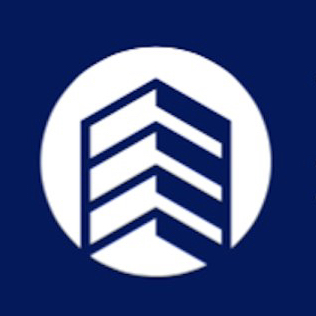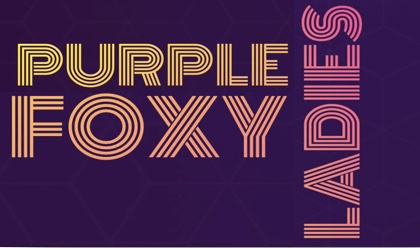MS BRUNER: Well, as I mentioned earlier in the program, we are honored to have a keynote speaker who is our champion, who exemplifies integrity and visionary leadership. His unwavering commitment to diplomacy, including this conference, serves as an inspiration for us all. Please join me in extending a warm welcome to the United States Secretary of State Antony Blinken. (Applause.)
SECRETARY BLINKEN: Thank you, everyone. Good afternoon.
AUDIENCE: Good afternoon.
SECRETARY BLINKEN: Oh, we got a great echo here. (Laughter.) It’s wonderful to see so many of you here. I know we’ve got a lot of folks online, too. And I just want to, first of all, welcome you to the State Department, and I hope this has been a productive day so far.
I was hoping to see you a little earlier today. We had a few intervening events, which seems to happen every day, but I’m glad to be here this afternoon. And whether you’re here in person or whether you’re here virtually, we are thrilled to be joined by so many young folks considering careers in diplomacy, and that’s what I’m here to encourage you to do.
I’ve had a number of jobs throughout my career. I spent a little time as a journalist. I tried my hand very briefly at making movies – briefly and unsuccessfully. (Laughter.) I was a lawyer – for one year, ten months, three weeks, two days, and five hours. (Laughter.)
But eventually, I found my way to the United States Government and to diplomacy. And what I’ve discovered over more than three decades now of being engaged in this is that even on the toughest days – and there are a few – it is incredibly meaningful to go to work every day, trying to advance the interests of the American people by making the world in which we all live just a little bit safer, a little bit more secure, a little bit healthier, a little bit more full of opportunity.
And that’s what our foreign policy is all about – or at least what it aspires to be all about. And in many ways, what we do here is more important, more urgent, and requires us to engage on more things than ever before – certainly more than ever in the 30 or so years I’ve been doing this.
You all know this – and I can see it from all the phones that are out here – technology is transforming everything, from how we live to how our economies function. Rising temperatures, pandemics, food insecurity, and other challenges all demand that we work more closely than ever before with other countries. As powerful as we are, as great the resources are that we have at our disposal, we simply can’t do things effectively alone if we’re really going to deliver for the American people. We have to find ways to work with others, to cooperate with others, to coordinate with others if we’re going to get the job done.
And as President Biden likes to say, right now in this moment we are at an inflection point for our country and for the world. The decisions we make in this particular period of time are likely to share the way the world looks not just for years to come, but potentially for decades and generations to come.
So every day, as you’ve heard, people here at the State Department are shaping and working to shape what that future looks like – working to resolve violent conflicts and unrest and alleviate the deep suffering they cause, from Gaza to Haiti to Sudan; addressing the threat of synthetic drugs, like fentanyl, that have ravaged so many of our communities here at home; building an economy that delivers more opportunity for folks, whether it’s here in the United States or around the world.
The more complex our work becomes, the more vital it is that this department – and the United States Government as a whole – attract a diverse range of thinkers and doers who can help us address these challenges – who think critically, who ask tough questions, who bring new ideas, bring new tools, bring new perspectives.
Now, one of the realities that we have to confront is that we are operating in an incredibly diverse world. The greatest strength that we bring to that is our own diversity. That is actually our comparative advantage. And so we want to make sure that we have a government and we have a department that fully reflects that diversity. If we’re leaving different experiences, different perspectives, different knowledge sets on the sidelines, we’re actually shortchanging our foreign policy; we’re shortchanging our country. That’s why we need a department that truly reflects the country that we represent.
Now many of you are studying things that may – it may not seem self-evident are relevant or applicable to our foreign policy. But the truth is, almost regardless of what you’re studying, we need you, and you can see that in so many of the things we’re working on that people don’t necessarily think of when they first think of the State Department.
We actually need scientists here who are advancing sustainable agriculture to combat climate change and to build food security for people around the world. We need public health specialists to help us prevent, detect, and respond to future pandemics. We need experts to help ensure that emerging technologies like artificial intelligence are actually used in ways that reflect our democratic values and expand equal opportunity for all.
Meeting these and so many other challenges in the coming decades requires us, as I said, to draw on people from every community and geography – every race, every religion, every national origin, gender, sexual orientation.
And as I said, it’s not just the right thing to do, it’s the necessary thing to do. It’s the mission-critical thing to do. I want to make sure those voices, those views, the different perspectives, are here because we have to test our assumptions every day.
Everyone brings a particular point of view, a particular perspective, to bear on any given problem. We want to make sure that we’re challenging ourselves, challenging the assumptions, challenging the premises. And the more diverse perspectives you bring to bear, the more effective you’re going to be in doing that.
We need a place where everyone has a seat at the table, where our foreign policy is stronger and our nation is stronger when we do that.
So as I said, I’ve made it a priority in this job to try to make sure that this department is a place where people from all backgrounds are empowered to contribute and to lead, from making our recruiting more fair and more transparent to instilling a stronger culture of respect and belonging for every single person.
To help realize that vision, we named the department’s first-ever Chief Diversity and Inclusion Officer back in April 2021, just a couple of months into this administration. And I am pleased that our newest CDIO, Zakiya Carr Johnson, began her role just this past week.
Today’s gathering is another part of how we’re working to engage the talents and insights of all Americans. You’re learning here how we’re working to advance American interests and values around the globe. You’re hearing from some remarkable leaders, like Ambassador Linda Thomas-Greenfield, our voice at the United Nations.
At the career fair that you’ll be engaged in, you’ll also have a chance to speak with people from all across the department, including many proud alumni of minority serving institutions, about what they do. And I hope you can see in them yourselves all of the possibilities that are here and that hopefully you’ll take a hard look at.
And as you close out this day, I want to encourage you to ask a few things. How can your own experiences, your own skills, your own interests, strengthen the work we do here?
How can you help revitalize this institution for the century ahead?
How can your own passion, your own commitment, help our country better live up to its highest ideals, whether it’s here at home or around the world?
In the coming weeks and months, hundreds of new foreign service professionals are going to take an oath to support and defend the United States Constitution. They belong to one of the largest cohorts of new State Department employees that we’ve had in over a decade, and I hope that today inspires some of you to consider joining them.
People ask me: What’s the best thing about this job? What’s the best thing about working at a place like the State Department? And of course, first and foremost it’s the people. I’ve had the opportunity over these more than 30 years to work with extraordinary people from all across our country and all around the world. And this institution continues to attract so many of the best and most interesting, engaging, effective people.
But the other thing is this, and it’s not something you can really put a price tag on. Every day I get to go to work, literally and certainly figuratively, with an American flag behind my back. And that more than anything else is a source of tremendous comfort, power, inspiration, determination, and for me, the single best thing about having an opportunity to represent our country.
So I hope some of you will join in. We need you. The institution needs you. The country needs you. I am so glad you’re here today.
Have a great rest of the day, everyone. Thank you. (Applause.)
Official news published at https://www.state.gov/secretary-antony-j-blinken-at-the-second-annual-minority-serving-institutions-conference/


